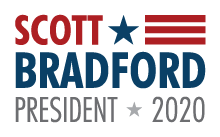That to secure [human] rights, Governments are instituted among Men, deriving their just powers from the consent of the governed, — That whenever any Form of Government becomes destructive of these ends, it is the Right of the People to alter or to abolish it, and to institute new Government, laying its foundation on such principles and organizing its powers in such form, as to them shall seem most likely to effect their Safety and Happiness.
Thomas Jefferson – The Declaration of Independence, Paragraph 2 (excerpt)
As a direct corollary to the three human rights — life, liberty, and property — there is an associated right of a society to self govern for the purpose of protecting those rights.
Governments exist for the people, not the people for their government. Thus the people have the right to establish, control, change, or dissolve their governments when they wish it. This is preferably done through a nonviolent democratic process, but if a government becomes despotic and no longer abides by the limits placed upon it by the people, the people have the right to defend themselves by toppling that government…using force if necessary.
This is how the United States came to exist in the first place. It is not a particularly radical position; it is in our very lifeblood.
The principle of self governance means that, at any time, any community may choose to alter the system under which it operates…so long as it does so by the consent of the people. This is a feature of freedom, not a bug. States have the right to leave the union if they wish it, for example. Our union, if it is a just one, must be based upon the voluntary assent of the states and the people.
The principle of self governance is also the root of the principle of federalism. The smaller and more local the government, the more accountable it is to the people. For this reason, the federal government is meant to be tightly restricted and responsible mainly for foreign and interstate relations, while the state and local governments are meant to have most domestic responsibilities.
Many of our national problems are rooted in this abandonment of the principle of federalism and, by extension, the human right of self governance. Edicts from Washington passed with narrow majorities and imposed upon the whole nation — even upon states strongly opposed to that edict — only breed contempt and mistrust. Let the people manage their own affairs at more local levels — let them self govern.
